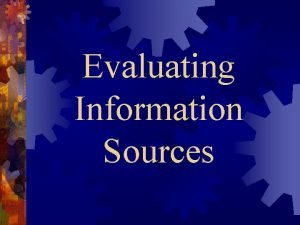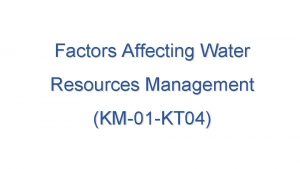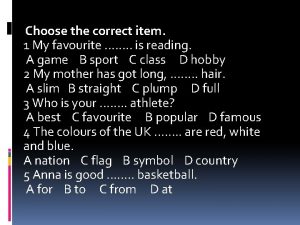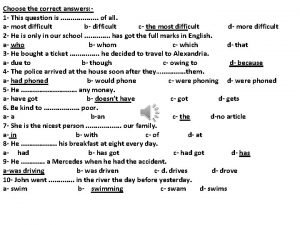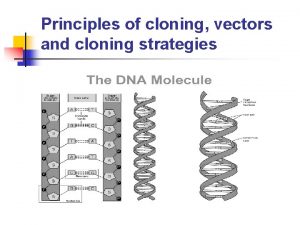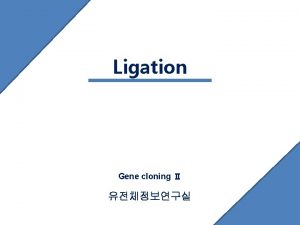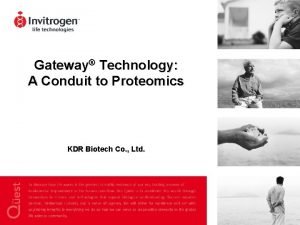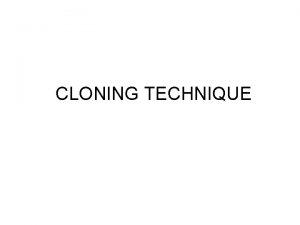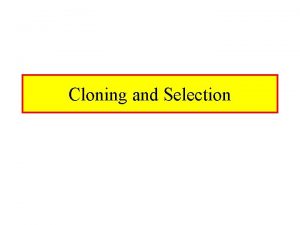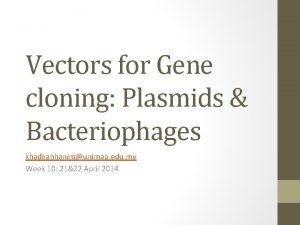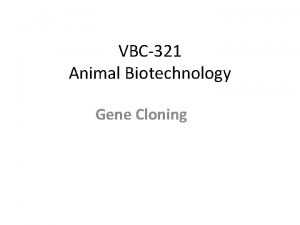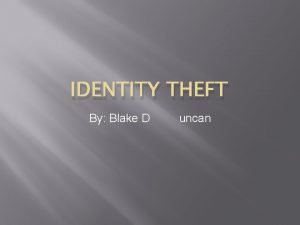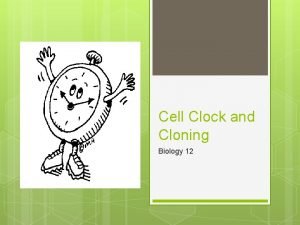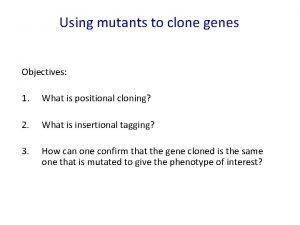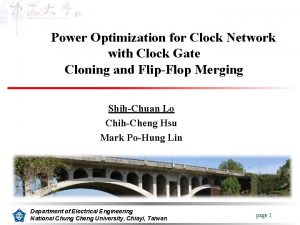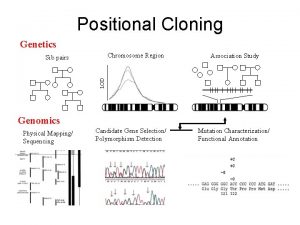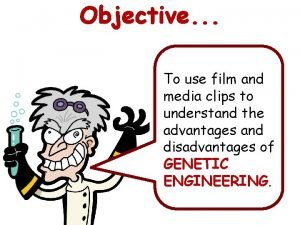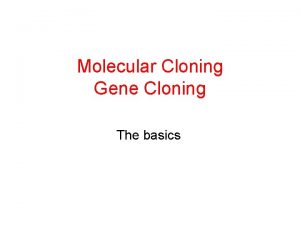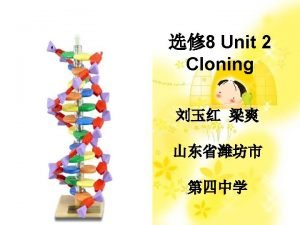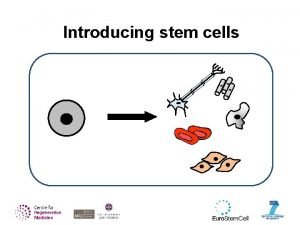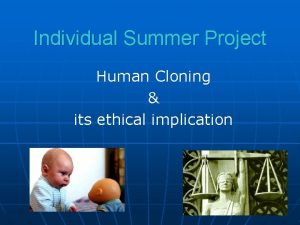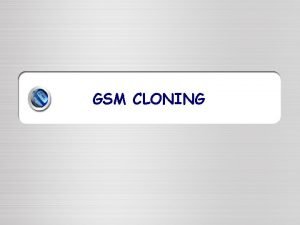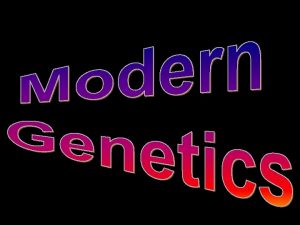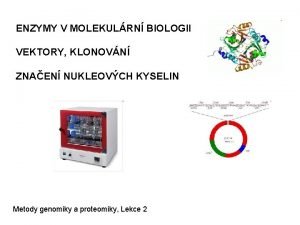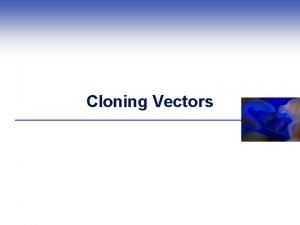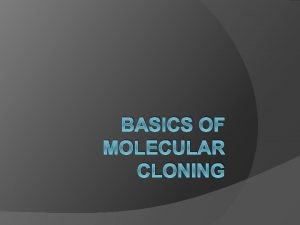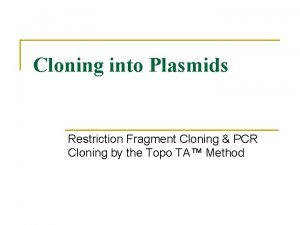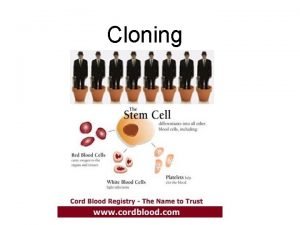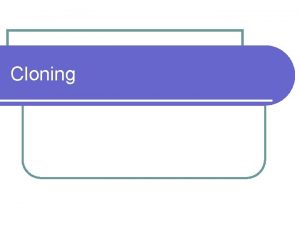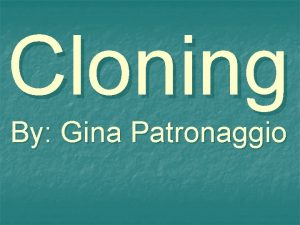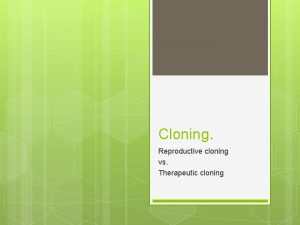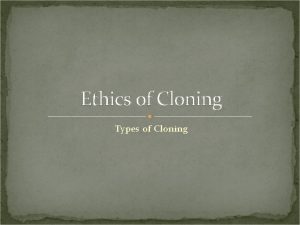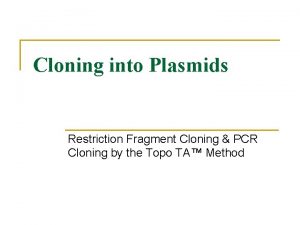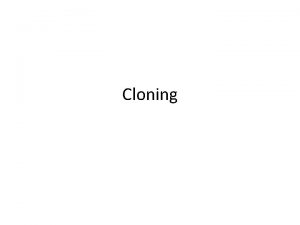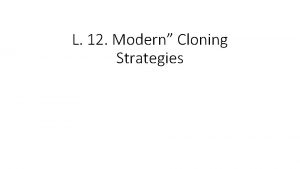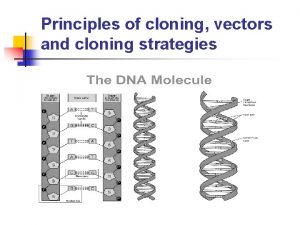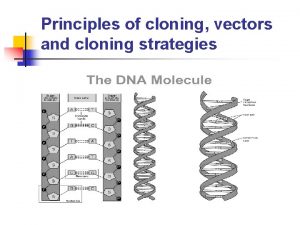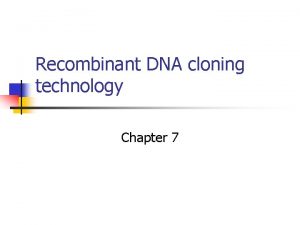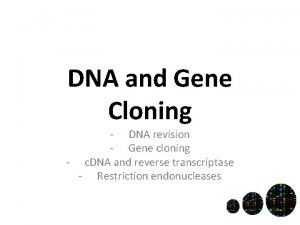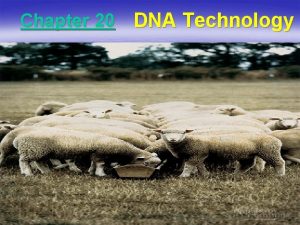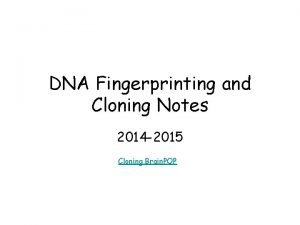DNA cloning General strategies Choose DNA sources g






























- Slides: 30

DNA cloning General strategies Choose DNA sources (g. DNA/c. DNA) Produce collection of DNA fragments Join them to appropriate vector Introduce r. DNA to a host cell Screen/Select transformants

Host Organisms r. DNA recipients Bacteria Yeast Mould Animal cell Plant cell

Transformation Plasmid Calcium chloride Heat shock Electroporation Phage/Cosmid/YAC Infection

DNA library Collection of cloned DNA sequences in host cells Require complete or near complete representatives of genome

DNA library Large DNA fragments Fewer number of clones Library of genome with 3 * 109 bp Inserts of 20 kb long Require 1. 5 * 105 recombinant molecules

Types of DNA library Genomic Library representing the entire genome c. DNA Library representing only expressed genome

g. DNA library construction

g. DNA library construction Partial digestion of genomic DNA Ligation of fragments to vector of choice: plasmid, phage, cosmid, BAC or YAC

g. DNA library construction

g. DNA library construction

c. DNA library construction Isolation of poly (A) RNA

c. DNA library construction c. DNA preparation

Homopolymer tailing with Td. T

c. DNA library construction

Library storage Homogeneous aliquots Deep freeze at -70 / -80 Celcius 20 % glycerol 7% DMSO

Library screening Southern/Western hybridization using specific probe Chromosome walking Differential hybridization Subtractive hybridization

Library screening

Library screening

Chromosome walking

Differential hybridization Individual colonies Microarray Library screening

Differential hybridization

Differential hybridization

Subtractive Hybridization

DDRT-PCR Differential Display Reverse transcription (ase) Polymerase Chain Reaction Screening of differentially expressed genes Without library

DDRT-PCR Subsets of m. RNA to be amplified Using 3’ oligo d(T) + dinucleotide primers 5’ arbitrary primers Size fractionation with PAGE Identification of polymorphic bands Sequencing and Expression verification

DDRT-PCR

DDRT-PCR

DDRT-PCR

DDRT-PCR

Genomic / c. DNA clone Identification: Genome organization (gene/nongene) Gene structure (exon/intron) Regulatory regions/sequences Induction of mutation for functional analysis Identification: Differentially expressed genes Expression profiles
 Print and web sources
Print and web sources Importance of water management
Importance of water management Choose the correct item then choose true or false
Choose the correct item then choose true or false Choose the correct answer.
Choose the correct answer. Logan stancato
Logan stancato Gene cloning process
Gene cloning process Gene cloning
Gene cloning Gateway technology with clonase ii
Gateway technology with clonase ii Reproductive vs therapeutic cloning
Reproductive vs therapeutic cloning Suspension cloning
Suspension cloning Gene cloning
Gene cloning Plasmid
Plasmid Identity cloning and concealment
Identity cloning and concealment Cloning in nature
Cloning in nature Cloning and sequencing explorer series
Cloning and sequencing explorer series How is selective breeding accomplished
How is selective breeding accomplished Inverse pcr
Inverse pcr Clock gate cloning
Clock gate cloning Positional cloning
Positional cloning Helpx
Helpx Advantages of cloning
Advantages of cloning Advantages and disadvantages of cloning
Advantages and disadvantages of cloning Genez molecular clones
Genez molecular clones Cloning vector
Cloning vector Advantages of cloning
Advantages of cloning Reproductive cloning
Reproductive cloning Human cloning cons
Human cloning cons Gsm cloning
Gsm cloning Process of cloning
Process of cloning What is cloning
What is cloning Nick translation
Nick translation
